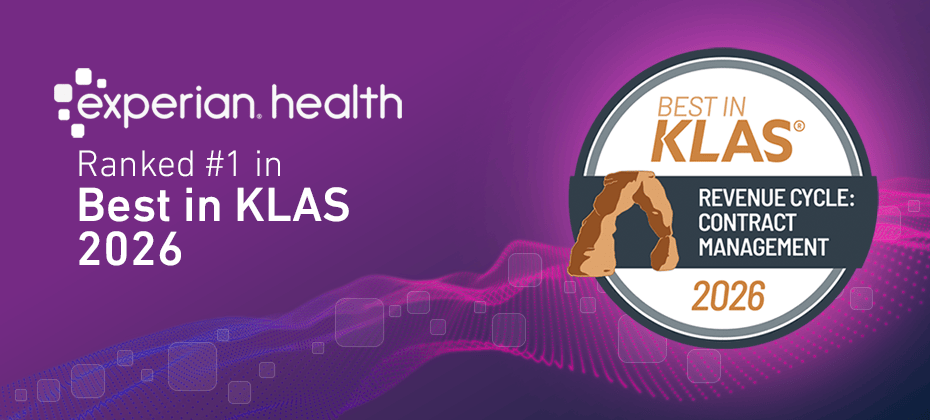
Racing against the clock to troubleshoot billing issues, claims bottlenecks and staffing shortfalls are just part of an average day for healthcare revenue cycle managers. It’s hard enough to maintain the status quo, never mind driving improvements in denial rates and net revenue. With integrated artificial intelligence (AI) and automation, many of these challenges in revenue cycle management (RCM) can be alleviated – and with just a single click.
Real-time coverage discovery and coordination of benefits software reduces errors and accelerates accurate claim submissions. This eases pressure on busy RCM leaders, so they have the time to focus on improving the numbers that matter most.
Top challenges in revenue cycle management
Efficiency is the currency of revenue cycle management. Maximizing resources is not just about keeping dollars coming in the door but about making the best use of each team member’s time and expertise. The ever-present call to “do more with less” is probably the biggest challenge. Breaking that down, some specific concerns that consume more time and resources than RCM managers would like, are:
- Complex billing procedures: With hundreds of health payers operating in the US, each offering different plans with different requirements, providers have their work cut out to ensure claims are coded and billed correctly. Any errors in verifying a patient’s coverage, eligibility, benefits, and prior authorization requirements can lead to delays and lost revenue.
- More claim denials: Inaccurate patient information and billing codes guarantee a denial. Beyond the rework and revenue loss, denied claims leave patients with bills that should not be their responsibility to pay, causing confusion, frustration, and higher levels of bad debt. Garbage in, garbage out.
- Patient payment delays: A few years back, patients with health insurance represented about a tenth of bills marked as bad debt. Now, this group holds the majority of patient debt, according to analysts. The rise in high-deductible health plans combined with squeezed household budgets means patients are more likely to delay or default on payments. Providers must be on the lookout for ways to help patients find active coverage and plan for their bills to minimize the impact of these changes.
How can AI-powered revenue cycle management solutions help?
The Council for Affordable Quality Healthcare (CAQH) annual index report demonstrates how much time can be saved using software-based RCM technology. Case in point: switching from manual to automated eligibility and benefits verification could save 14 minutes per transaction. This adds up quickly when daily, monthly, and yearly transactions are factored in.
Predictive analytics can be used to pre-emptively identify and resolve issues and support better decision-making, giving providers a head start on those elusive efficiency gains.
Three specific examples of how automation, AI and machine learning can streamline the front-end and solve challenges in revenue cycle management are as follows:
1. Upfront insurance discovery to find and fill coverage gaps
Confirming active coverage across multiple payers gives patients and providers clarity about how care will be financed. But this can be a resource-heavy process when undertaken manually. Coverage Discovery uses automation to find missing and forgotten coverage with minimal resource requirements. By unearthing previously unidentified coverage earlier in the revenue cycle, claims can be submitted more quickly for faster reimbursement and fewer write-offs.
With Experian Health’s recent acquisition of Wave HDC, clients now have access to faster, more comprehensive insurance verification software solution. The technology works autonomously to identify existing insurance records for patients with self-pay, unbillable, or unspecified payer status and correct any gaps in the patient’s coverage information. The patient’s details are updated automatically so that a claim can be submitted to the correct payer.
2. Real-time eligibility verification and coordination of benefits
As it gets harder to figure out each patient’s specific coverage details, it also makes sense to prioritize automated eligibility verification. Eligibility Verification uses real-time eligibility and benefits data to confirm the patient’s insurance status on the spot.
Similarly, Wave’s Coordination of Benefits solution, now available to Experian Health clients through Patient Access Curator, integrates directly into registration and scheduling workflows to boost clean claim rates. It automatically analyzes payer responses and triggers inquiries to verify active coverage and curate a comprehensive insurance profile. This means no insurance is missed, and the benefits under each plan can be coordinated seamlessly for more accurate billing.
3. Predictive denials management to prevent back-end revenue loss
Adding AI and machine learning-based solutions to the claims and denials management workflow means providers can resolve more issues pre-claim to minimize the risk of back-end denials. Use cases for AI in claims management might include:
- Automating claims processing to alleviate staffing shortages
- Reviewing documentation to reduce coding errors
- Using predictive analytics to increase operational efficiency
- Improving patient and payer communications with AI-driven bots
All of these contribute to a front-loaded denials management strategy. While prevention is often better than a cure, AI can be equally effective later in the process: AI AdvantageTM arms staff with the information they need to prevent denials before they occur and work them more efficiently when they do.
Whatever new challenges may pop up on the RCM horizon, AI and automation are already proving their effectiveness in helping providers save time and money. But more than that, they’re giving busy RCM leaders the necessary tools to start future-proofing their systems for persistent and emerging RCM challenges.
Learn more or contact us to find out how healthcare organizations can use AI and automation to manage current revenue cycle management challenges with a single click.


